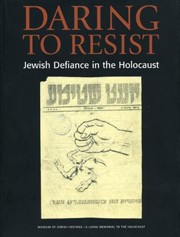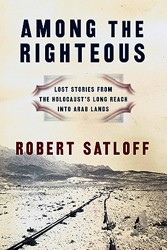Despite the efforts of Holocaust deniers, the murder of six million Jews and five million “others” remains an established fact of 20th century history. What is at issue in Holocaust research is the relative weight of ideology, personality, and bureaucracy, among other factors, in assessing the causes for Germany, the most advanced and cultured European nation, to perpetrate genocide. There is also the matter in which scholars have pursued the question of “uniqueness.” In the early years of Holocaust scholarship a number of historians, such as Steven Katz, viewed the Nazi genocide as unprecedented in the annals of history. Never before, went the argument, has an entire people been marked for death as was the case during the Holocaust. The subject of the uniqueness of the Holocaust is among the many controversial issues addressed by Donald Bloxham’s provocative and essential study of the Nazi genocide.
Bloxham, professor of modern history at Edinburgh University, is the author of a number of important books on the history of genocide. In the volume under review, Bloxham notes that there is a distinction between the objectives of Nazi Germany in regard to the murder of European Jewry and the manner in which Holocaust scholarship has recorded them. For example, Himmler, the so-called architect of the Holocaust, sought to remove Jews from Germany and its occupied territories in the East and, as the war progressed, turned to the mass murder of Jews as an expedient because of demographic and logistic concerns. Bloxham challenges the contention that Nazi Germany’s objective, had they won the war, was to target Jews throughout the world for annihilation. Bloxham argues that had the Soviet Union been quickly defeated as Hitler anticipated, the immediate killing of Jews “would not have occurred.” Rather, the destruction of the Jews would have been realized due to slow attrition as intended in the unrealized Madagascar, Lublin, and Siberian plans. Elsewhere Bloxham argues that depending on the absolute or conditional nature of victory, British Jewry and Jews living in neutral countries may have also escaped extermination (let alone in the United States).
Illustrative of the book’s title, The Final Solution: A Genocide, Bloxham turns to the issue of the uniqueness of the Holocaust, where he argues that the Nazi genocide of the Jews was one of many perpetrated by Europeans long before the Nazis appeared on the political landscape. He places the murder of European Jewry within the context of the manner in which European colonial empires treated their native populations (also including the Armenian genocide). The Third Reich viewed Poland and the rest of Eastern Europe in the same manner as the European imperialist nations viewed their empires in Africa and Asia — with indifference to the survival of these subjects of exploitation. Bloxham accuses those scholars who write of the uniqueness of the Holocaust of historical neglect because “most other genocides have been of insufficient interest to Western intellectuals for them to ponder their metaphysical dimensions in the way the Holocaust has been pondered.”
It is not that Bloxham diminishes the magnitude of the Holocaust but, as he writes: Let me be clear: something of the dimensions of the final solution should prompt huge and sustained philosophical self-reflection, but it is the ‘surprise’ that registers in so much of the scholarship that is telling, since Europe had not only witnessed other genocides, it had inflicted them on its colonial peripheries well before the continent erupted at its own core in the twentieth century.…
He concludes that the study of the Holocaust should be no different than the study of any given genocide in terms of understanding the balance between general and specific features. Bloxham notes that his volume seeks to retain the historical specificity of the Holocaust, a process that occurred on one continent at one time and with the ultimate sanction of Hitler, while insisting that that respect for its peculiar features is not at odds with an approach situating the Shoah in relationship to other genocides.
Finally, Bloxham argues that although anti-Semitism and Nazi racial ideology are important factors in understanding the causes of the Holocaust, these considerations alone are insufficient to explain the genocide. Rather, states the author, due weight should be given to the immediate contingent circumstances that led to mass murder, and efforts made to “situate them into the broader patterns of human behavior in the late-modern world.”





